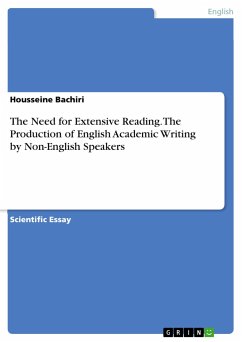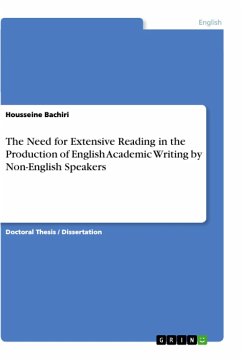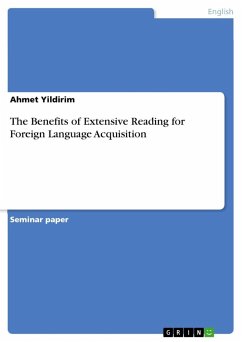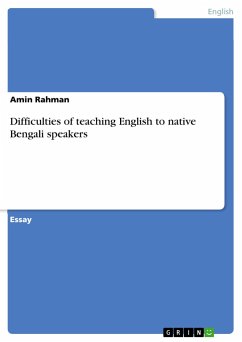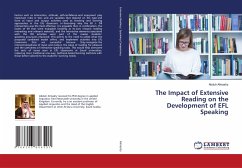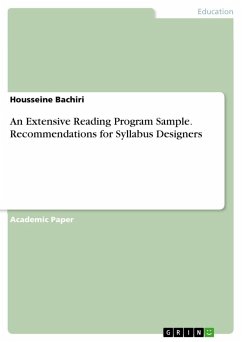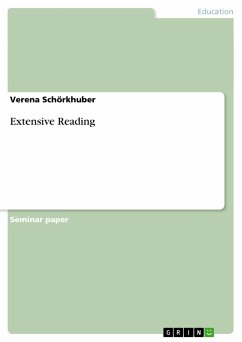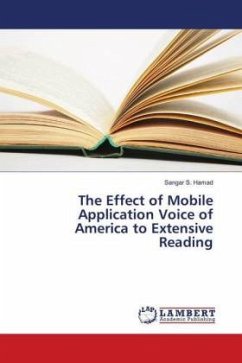Scientific Essay from the year 2016 in the subject English Language and Literature Studies - Other, , course: English, language: English, abstract: This paper arises from an attempt to answer questions about whether Moroccan first and second year university students of English as a foreign language (EFL) need extensive reading in order to produce academic texts. Having used two different questionnaires, along with an extensive reading experiment at Mohammed V University, I have been able to analyze and discuss both ethnographic and numerical data obtained from the aforementioned research instruments. The participants in my research were Moroccan university students and professors. Results indicate a myriad of shortcomings in the teaching of reading and writing in Moroccan higher education. Classroom activities demonstrate a lack of students' engagement and interaction, especially in the reading session. Results also show students' willingness and keenness to commence reading extensively because they feel empowered, confident, and fluent over time. Extensive reading (a receptive skill) and academic writing (a productive skill) are both interactive, constructive, and complementary. In extensive reading, students learn to increase their reading speed and comprehension while simultaneously expanding their lexicon, whereas in academic writing they learn to think about the context, audience, and purpose of their piece of writing. In doing so, they learn to write with simplicity, accuracy, clarity, and an analytical eye. For students, these skills are new and they will ipso facto get used to them after they start writing. Development of literacy de facto relies enormously upon effective learning of reading and writing, for students consume knowledge through the former and produce it through the latter. Given this, both extensive reading and academic writing can solidly transform students into future writers, scholars, thinkers, and academics whose intellectual contributions will change the course of our country for the better. Therefore, the pedagogy adopted for the teaching of reading and writing in Moroccan higher education should be reconsidered.
Hinweis: Dieser Artikel kann nur an eine deutsche Lieferadresse ausgeliefert werden.
Hinweis: Dieser Artikel kann nur an eine deutsche Lieferadresse ausgeliefert werden.

